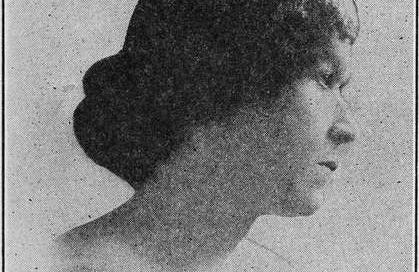Caged Birds
Georgia Douglas Johnson's 1918 poem figures the heart as a bird--first in restless flight, then tragically caged
The heart of a woman goes forth with the dawn, As a lone bird, soft winging, so restlessly on, Afar o'er life's turrets and vales does it roam In the wake of those echoes the heart calls home. The heart of a woman falls back with the night, And enters some alien cage in its plight, And tries to forget it has dreamed of the stars While it breaks, breaks, breaks on the sheltering bars.
What we love about this poem…
Many authors have used birds to signify people or ideas. Here, though, it’s not a person but an organ—a woman’s heart—that is bird-like.
And how her heart suffers! The poem moves so swiftly from a language of freedom and autonomy to that of entrapment and despair; no sooner has the heart sallied forth in hope than it ends a broken, defeated thing. The subtle, unspoken mechanisms of that defeat are race and gender. Johnson says in 8 lines of poetry what some novelists, playwrights, and non-fiction prose writers have taken hundreds of pages to convey.
About the Author
Georgia Douglas Johnson (1880-1966) was a poet, playwright, and nationally syndicated columnist and a key figure of the Harlem Renaissance. Through plays such as Plumes and The Ordeal, she campaigned against lynching and drew attention to the inequality of health care for African Americans.
To Read Alongside
Johnson was closely linked to a number of the Harlem Renaissance writers we have featured in past newsletters: her works—like Willis Richardson’s—were published in The Crisis, the formative magazine which was edited and founded by W.E.B Du Bois (see an excerpt from his sci-fi story “The Comet” here); this week’s featured poem was eventually collected in a volume with an introduction by William Stanley Braithwaite (see one of his poems here).
Johnson’s “The Heart of a Woman” also makes perfect reading alongside Maya Angelou’s I Know Why the Caged Bird Sings (1969)—the title of which was taken from Paul Laurence Dunbar’s poem “Sympathy” (1899), whose final stanza resonates with Johnson’s poem:
I know why the caged bird sings, ah me,
When his wing is bruised and his bosom sore,—
When he beats his bars and he would be free;
It is not a carol of joy or glee,
But a prayer that he sends from his heart’s deep core,
But a plea, that upward to Heaven he flings—
I know why the caged bird sings!Suggest a LitHit!
Tell us your own favourites from literature you've read, and we can feature you as a Guest Curator. Just email us with the following information:
Your full name
The title of the book you're suggesting
The location of the excerpt within the book (e.g., "in the middle of chapter 5"), or the excerpt itself copied into the email or attached to it (in Word)
Why you love it, in just a few sentences
About LitHits
LitHits helps you make time for reading by bringing you unabridged excerpts from brilliant literature that you can read on the go, anytime or any place. Our curators carefully select and frame each excerpt so that you can dive right in. We are more than a book recommendation site: we connect you with a powerful, enduring piece of literature, served directly to your mobile phone, tablet or computer.
You might also enjoy...
Feedback
We'd love to hear your thoughts on our newsletter:
kshepherdb@yahoo.co.uk
Graphic design by Sara Azmy
All curation content © 2024 LitHits. All rights reserved.




